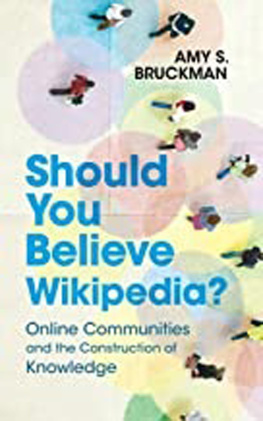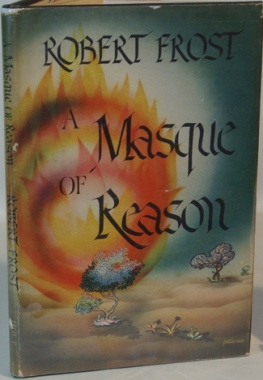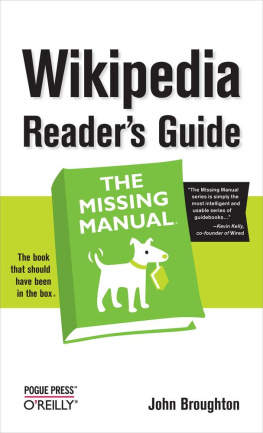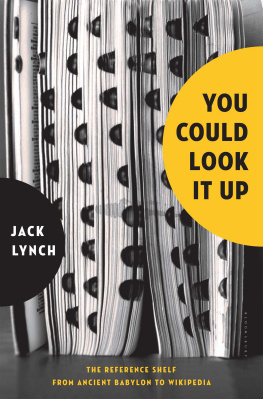How Wikipedia Works
Phoebe Ayers
Charles Matthews
Ben Yates
Copyright 2008
For information on book distributors or translations, please contact No Starch Press, Inc. directly:
No Starch Press, Inc.
555 De Haro Street, Suite 250, San Francisco, CA 94107
phone: 415.863.9900; fax: 415.863.9950;
Library of Congress Cataloging-in-Publication Data
Ayers, Phoebe.How Wikipedia works : and how you can be a part of it / Phoebe Ayers, Charles Matthews,and Ben Yates.p. cm.ISBN-13: 978-1-59327-176-3ISBN-10: 1-59327-176-X1. Wikipedia--Handbooks, manuals, etc. 2. Wikipedia. 3. User-generated content. 4. Electronicencyclopedias. 5. Social media. I. Matthews, Charles, 1954- II. Yates, Ben. III. Title.AE1.5.A98 2008030.285--dc222008023350No Starch Press and the No Starch Press logo are registered trademarks of No Starch Press, Inc. Other product and company names mentioned herein may be the trademarks of their respective owners. Rather than use a trademark symbol with every occurrence of a trademarked name, we are using the names only in an editorial fashion and to the benefit of the trademark owner, with no intention of infringement of the trademark.
The information in this book is distributed on an "As Is" basis, without warranty. While every precaution has been taken in the preparation of this work, neither the authors nor No Starch Press, Inc. shall have any liability to any person or entity with respect to any loss or damage caused or alleged to be caused directly or indirectly by the information contained in it.

No Starch Press
Dedication
For John and Sally Ayers, who taught me to always look things up [PSA]
For my wife Clare, in recognition for her support over many years [CRM]
For Susan Shore and Matthew Cobbs [BLY]
Acknowledgments
Special thanks to:
Bill Pollock for supporting a Wikipedia book and a free license, Tyler Ortman for his patience and hundreds of suggestions, Megan Dunchak for her care with the manuscript, Riley Hoffman for layout, and the entire No Starch staff for their support; Samuel Klein for helping develop this book and for teaching Phoebe how Wikipedia (should) work; Benjamin Mako Hill for providing technical support, advice on free culture and licensing, and writing about free software; our reviewers (any mistakes are entirely our own): John Glover, Corprew Reed, Diane Schiano, and Richard Stallman; Eben Moglen for advice on the GFDL; the contributors to http://en.wikipedia.org/wiki/User:Phoebe/book: AaronSw, Sj, Clayoquot, Peterblaise, MER-C, Graham87, Jeandr du Toit, Llywrch, BanyanTree, and Kim Bruning; and our many friends who offered advice and support, especially James Forrester, Austin Hair, Lauren Manes, Sasha Wait, and Sarah Wait Zaranek.
And thanks to the thousands of dedicated Wikipedians who make Wikipedia, and this project, possible.
"It is probable that the idea of an encyclopaedia may undergo very considerable extension and elaboration in the near future. Its full possibilities have still to be realized. There is no practical obstacle whatever now to the creation of an efficient index to all human knowledge, ideas and achievements, to the creation, that is, of a complete planetary memory for all mankind."
1937, World Brain
-- H.G. Wells,
Introduction
Welcome! Wikipedia, the free encyclopedia, is the largest and most popular reference website in the world. Wikipedia is also unique: This encyclopedia is written by everyone and can be read by anyone.
This book is written for readers, current editors, potential contributors, and anyone else interested in Wikipedia. The book describes what kind of writing Wikipedia includes, how Wikipedia works behind the scenes, and how to get involved.
We cover all aspects of participating in Wikipedia, from reading the site to editing articles to navigating the site's community and governance.
Wikipedia is based on a wiki , a technology that allows anyone to change pages easily on the site. If you're impatient to work on Wikipedia, go to http://en.wikipedia.org/ and start improving the encyclopedia right now!
If you learn most quickly by diving right in, or if you already edit Wikipedia, then you can use this book as a reference guide and a source of tips. But if you're just starting out, or if you want to know everything about how Wikipedia works today and how it has developed over time, you should start reading from the beginning.
Inside This Book
This book is divided into four parts, starting with the basics and working through all aspects of Wikipedia.
Part I looks at Wikipedia from the reader's point of view. covers the structure of an individual article and methods for evaluating article quality.
Part II turns to editing the site. A basic explanation of how to edit a page and an introduction to wikisyntax are in steps through the life cycle of a newly created article.
Part III covers Wikipedia's elaborate social side. We begin with how to sign up as an editor, including setting up an account, setting preferences, and using your personal user and talk pages in discusses how the dispute resolution process worksand how to avoid disagreement in the first place.
Part IV steps back from the English-language Wikipedia to cover other Wikimedia Foundation projects, including editions of Wikipedia in other languages in .
is an index of Wikipedia pages quoted in the book.
The basic principles we describe for reading articles, editing pages, and collaborating with others will provide a good foundation for working on any Wikimedia wiki project. But although the Wikimedia projects all share the same general philosophy, any specific policy or custom mentioned here might not apply outside the English-language Wikipedia. If you're interested in exploring another project, remember that each wiki website represents a unique collaborative community, which may have its own rules.
What You Should Know Going In
You don't need any prior experience with wikis or any knowledge of programming to use this book. But you should know how to access web pages on the Internet in the following ways:
You should also know how to search the Web using Google or another search engine and have an active email account.
All references in this book to Wikipedia's interface assume that you're using a standard web browser on a personal computer, have logged into the English-language Wikipedia, and are using the default (Monobook) skin without modifications. If you use Wikipedia without logging in, not all tabs and sidebar links will display, but most other functions should be the same.
If you intend to view Wikipedia on a mobile phone or personal digital assistant (PDA), visit http://en.wap.wikipedia.org/. This official mobile version was introduced in mid-2007; see [[Wikipedia:WAP access]] for unofficial versions.
Using This Book
Wikipedia is always changing. It's a dynamic collection of web pages in constant motion, so although we've made this book as current as possible, specific details may have changed by the time you read these words. For this reason, we frequently reference pages on Wikipedia.








